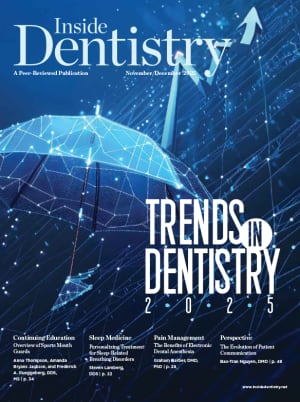Align Technology, Inc., a medical device company that develops the Invisalign® System, iTero™ intraoral scanners, and exocad™ CAD/CAM software, has announced the recipients of its 2025 research grants. A total of $300,000 in grants were awarded as part of the company’s annual research award program, now in its 15th year.
“Align is pleased to grant the following research awards that will lead to insights and evidence that advance the science and applicability of treatment for patients of all ages,” said Dr. Mitra Derakhshan, executive vice president and chief clinical officer, global treatment planning and clinical services at Align. “We are excited to support university research around the world, and we continue to learn about the findings from the awarded research and their publications.”
Award recipients for 2025 include:
Americas:
- University of Alberta (Canada) – Dr. Carlos Flores-Mir
- University of Florida (U.S.) – Dr. Sarah Hisham Abu Arqub
- University of Rochester (U.S.) – Dr. Dimitrios Michelogiannakis
- State University of Rio de Janeiro (Brazil) – Dr. Jonas Capelli Junior
Europe:
- University of Liège (Belgium) – Dr. Baurin Basil
- Link Campus University (Italy) – Dr. Giuseppina Laganà
- UniCamillus International Medical University (Italy) – Dr. Roberta Lione
- Link Campus University (Italy) – Dr. Giuseppina Laganà (additional grant)
Asia Pacific:
- Sichuan University (China) – Dr. Wenli Lai
- Sydney Dental Hospital (Australia) – Dr. Narayan H. Gandedkar
- Sichuan University (China) – Dr. Yating Yi
- Sichuan University (China) – Dr. Hu Long
The number of applications to the program this year was the largest since its initiation 15 years ago, according to John Morton, Align’s vice president and technical fellow. “The research endeavors funded by this highly competitive program may advance the science of dentistry and aim to improve the dental care of the global community,” Morton said. “We are proud to provide this opportunity to these excellent university researchers throughout the world.”
Funded studies span a range of topics, such as: adherence to clear aligner treatment among adolescents; effects of consultation methods on acceptance of treatment plans; bonding precision for composite attachments; biological markers in orthodontic movement; use of 3D imaging to reduce periodontal recession; comparisons of clear aligners and fixed appliances in tooth control; interceptive treatment for displaced maxillary canines; arch expansion protocols for mixed dentition; predictability of tooth movement in open-bite patients; periodontal outcomes in different treatment approaches; alveolar bone remodeling analysis; efficacy of aligners in occlusal and mandibular plane rotation.
All submissions were initially reviewed anonymously by an independent academic panel. Final selections were made by Align Technology.
